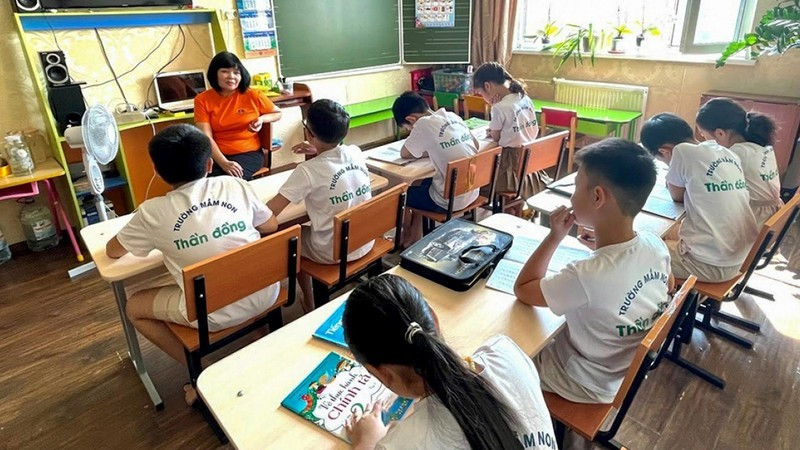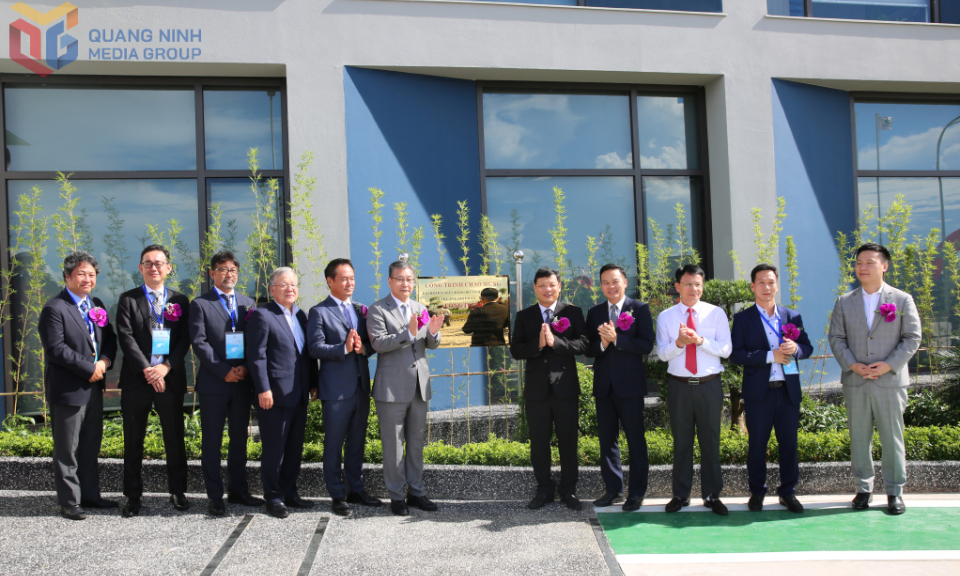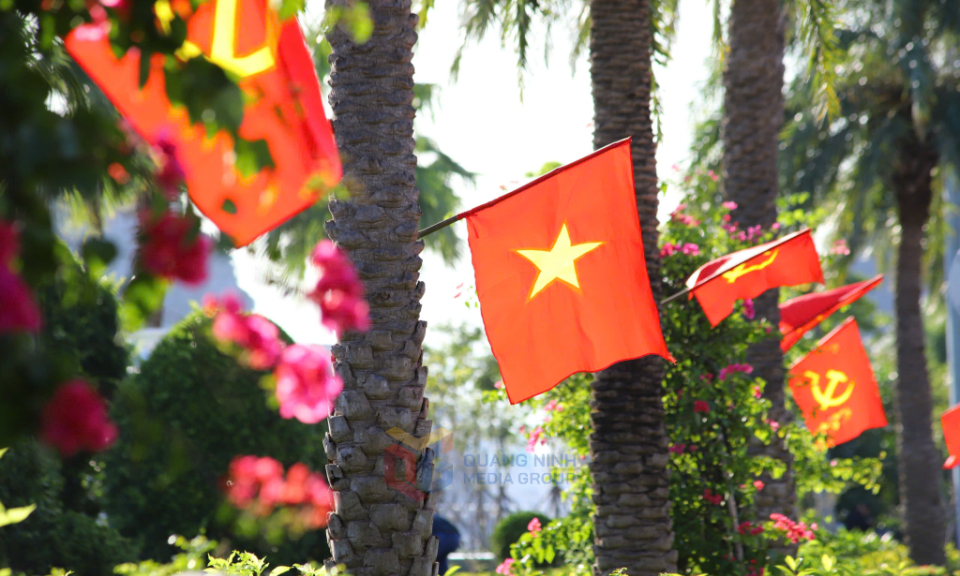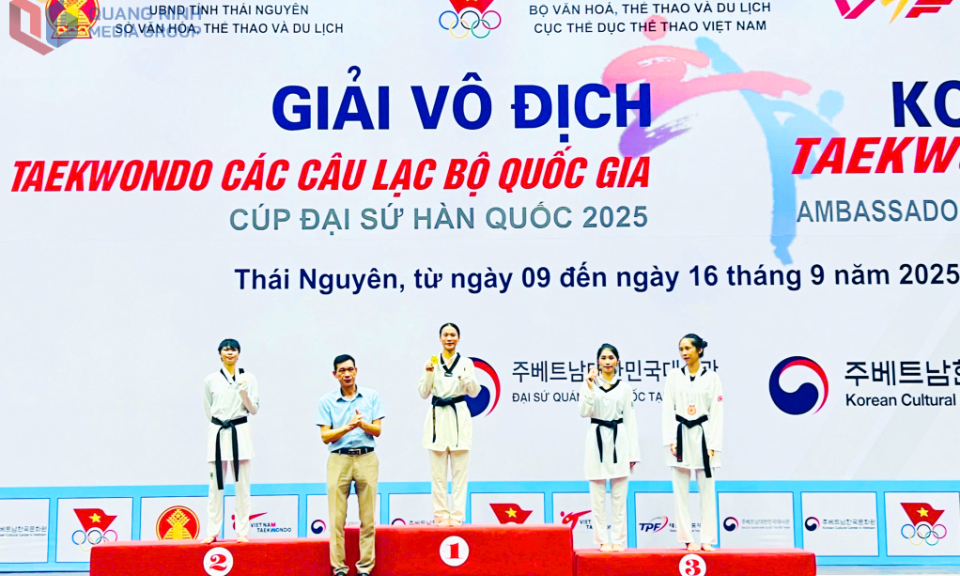Improving Vietnamese teaching to overseas Vietnamese
In recent years, the promotion of Vietnamese teaching and learning for generations of overseas Vietnamese has always been of great interest to the Party and State by promulgating practical and effective policies.
In addition, the Ministry of Education and Training has compiled and released sets of books, programmes and documents to meet the aspirations of learning the language among overseas Vietnamese around the world, contributing to promoting the movement of Vietnamese teaching and study abroad.
Dr. Nguyen Thu Quynh from University of Education under Thai Nguyen University said in addition to the task of training high-quality human resources in education for the northern mountainous provinces and the whole country, since 2001, the University of Education under Thai Nguyen University has been tasked with teaching Vietnamese to foreigners. Among the students who are trained at the university, there are a large number of overseas Vietnamese children. Therefore, teaching Vietnamese through cultural experience is one of the methods the university has focused on.
Specifically, the university has integrated cultural experience activities in teaching and learning Vietnamese to overseas Vietnamese such as acting based on a number of typical Vietnamese literary works. With this form, learners can develop skills using Vietnamese such as listening, speaking, stimulating learners' imaginations, promoting creativity in the process of perception and the practice of language.
Moreover, the university has enhanced the understanding of literature and arts and boosted learners' empathy with Vietnamese language and culture. The method of telling fairy tales has been also chosen by the university to help learners gain more understanding of Vietnamese life and culture, increasing their vocabulary and improving their ability to use the language. Creative storytelling has also helped learners improve the quality of narrative language and strengthen their memory and imagination.
Applying some active teaching methods and techniques in teaching Vietnamese to overseas Vietnamese, Dr. Do Phuong Thao, a Principal Lecturer from the Faculty of Vietnamese Studies under the Hanoi National University of Education said during the process of researching and teaching, the research team used two forms of integrated teaching including intra-subject integration and interdisciplinary integration. With internal integration within the subject, listening-speaking-reading-writing skills are integrated into one hour of Vietnamese teaching to enhance educational effectiveness and save time for learners.
Interdisciplinary integration means that many related subjects are brought together into a new subject with a common theme. Teachers will implement and take steps for the purpose of developing students' self-efficacy, exploration and discovery in teaching and learning Vietnamese for overseas Vietnamese, towards new and positive ways of learning, achieving high results.
National cultural identity and traditions, especially the mother tongue, are the strength and intangible assets of each country to link communities together. This is especially meaningful to Vietnam when thousands of years of culture are condensed into the Vietnamese language. Therefore, preserving, nurturing and developing the Vietnamese language are essential for all Vietnamese.
Dinh Hoang Linh, Head of Information and Culture Department under the State Committee for Overseas Vietnamese Affairs (Ministry of Foreign Affairs)
The demand for learning Vietnamese from overseas Vietnamese has been increasing day by day. Learning Vietnamese for many different purposes such as communicating in families and communities to preserve the Vietnamese mother tongue and culture. To support the community in maintaining Vietnamese, preserving and promoting national the cultural identity, the Ministry of Education and Training has carried out synchronous solutions in resolutions and projects by promulgating guiding documents to create a legal basis for the formulation, development and updating of teaching programs and materials and the organisation of teaching and testing activities, said the Deputy Head of Continuing Education.
Since 2013, the Ministry of Education and Training has worked with the State Committee for Overseas Vietnamese Affairs to organise training course on professional knowledge for volunteer teachers who have taught Vietnamese to overseas Vietnamese annually. Every year, about 65 to 70 teachers from many countries have attended and received certificates of training courses, becoming the core of the Vietnamese language teaching and learning movement among the overseas Vietnamese community in other countries.
According to the Ministry of Education and Training, despite the great attention paid, Vietnamese teaching and learning in foreign countries have still faced many shortcomings. The majority of fluent Vietnamese users in the community are aging, increasing the risk of the loss of the mother tongue in the overseas Vietnamese community. In addition, many teachers of overseas Vietnamese have not had pedagogical experience, so the transmission of knowledge to students is still limited.
According to the Ministry of Education and Training, to effectively innovate Vietnamese teaching and learning for overseas Vietnamese, the relevant domestic agencies need to coordinate with overseas Vietnamese representations and foreign agencies to propagate and raise their awareness of the importance and benefits of learning Vietnamese. It is also crucial to mobilise overseas Vietnamese to encourage their children to participate in Vietnamese training courses. The relevant agencies and units need to regularly inform the overseas Vietnamese community of Vietnamese language teaching and support activities as well as encourage overseas teachers and students to make active contributions to the Vietnamese language teaching and learning movement.






